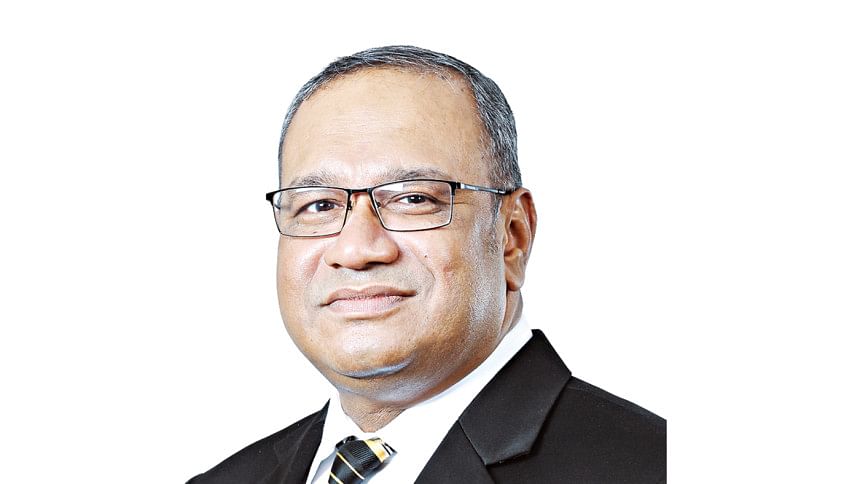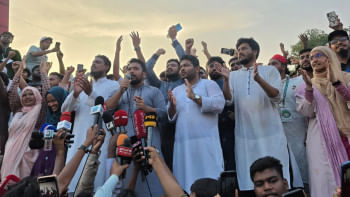Revolutionising contactless payments with WEAREBL

M. Khorshed Anowar
DMD, Head of Retail & SME Banking
Eastern Bank
The Daily Star (TDS): How is Bangladesh progressing in its transition to a cashless economy?
M. Khorshed Anowar (MKA): Bangladesh is steadily progressing towards a cashless economy, driven by rapid digital adoption, fintech innovation, and supportive government policies. The rise of digital banking apps, such as Skybanking of Eastern Bank (EBL), further accelerates this shift by offering secure, user-friendly financial solutions. Mobile financial services (MFS) have revolutionised digital transactions services; enabling millions of customers across Bangladesh to send money, pay bills, and shop online seamlessly.
The government's initiatives, including interoperability among MFS & Banks through the expansion of the National Payment Switch network, are strengthening the digital payment ecosystem. The increasing acceptance of debit, credit, and prepaid cards, especially Visa and Mastercard, highlights a move away from cash dependence. Additionally, the adoption of QR payments and contactless transactions is gaining momentum, offering retailers of all sizes to adopt a convenient mode for receiving digital payments.
TDS: What innovative steps has your bank taken to accelerate the shift toward a cashless economy, and how have they impacted customers?
MKA: EBL has been at the forefront of driving Bangladesh toward a cashless economy through innovative digital payment solutions.
EBL has massively expanded its card business, offering a wide range of debit, credit, and prepaid cards, with NFC (Near Field Contact) facility, to promote seamless and convenient digital transactions. To further revolutionise contactless payments, EBL introduced WEAREBL, a line of smart accessories that function as payment devices, allowing users to make transactions effortlessly.
The introduction of QR payment systems has made digital payments more accessible, enabling customers to pay at retail stores, restaurants, and service points simply by scanning a code. EBL has also ensured interoperability with MFS platforms, making fund transfers and card bill payments smoother. Additionally, by integrating payments into m-commerce and e-commerce platforms, EBL has empowered businesses and consumers with secure, fast, and convenient online transactions.
These innovations have significantly enhanced customer convenience, reduced cash dependency, and strengthened Bangladesh's transition to a fully digital financial ecosystem.
TDS: What policy changes or government initiatives do you believe are crucial for making digital transactions more secure, inclusive, and widely adopted?
MKA: First, strengthening cybersecurity regulations is crucial to protect consumers from fraud and data breaches. The government should enforce stricter security protocols, promote two-factor authentication, and encourage banks and fintech firms to invest in advanced fraud detection systems.
Second, promoting financial literacy programs will drive greater adoption. Many potential users, particularly in rural areas, remain hesitant about digital transactions. Nationwide awareness campaigns and digital banking education initiatives can bridge this gap.
Third, expanding digital infrastructure—including wider internet access and improved mobile network coverage—will ensure seamless transactions, especially in remote areas.
Additionally, mandating interoperability across banks, MFS, and fintech platforms will enhance convenience and financial inclusion. Simplifying digital KYC (Know Your Customer) procedures and offering incentives for businesses to accept digital payments can further boost adoption.

 For all latest news, follow The Daily Star's Google News channel.
For all latest news, follow The Daily Star's Google News channel. 



Comments